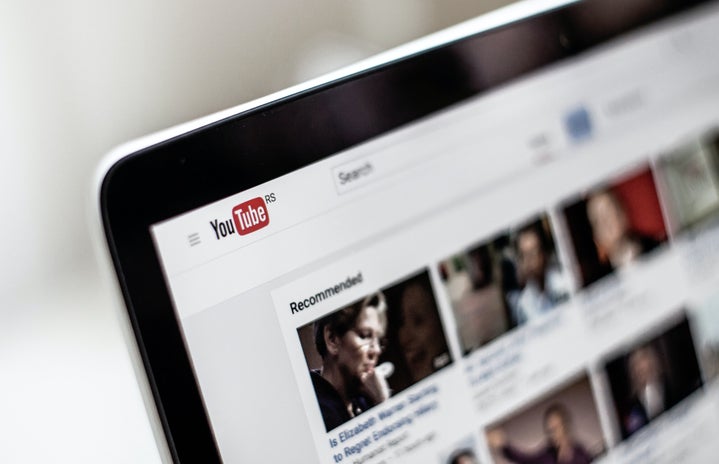If you’ve surfed YouTube in the past few years, you may have noticed a surge in lengthy videos with obscure titles, focusing on entertainment and pop culture. This recently emerging “video essay” style has taken up its own niche in video content, which combines the thesis-style of an English paper with entertaining commentary on specific topics in the media. The range of the video essay spans across topics in film and television, from the inner workings of character Cat Valentine’s mind from Victorious to the relationship of “Holes” with the prison-industrial complex. The topics feature a wide variety of content, so there’s something out there for everyone in the world of video essays.
What defines a video essay?
With such a recent emergence of this video style, how can we know what exactly defines the video essay? According to ECU Library, “it is a video that analyses specific topics or themes relating to film or television and is relevant as it comments on film in its own language.” In essence, the video essay can be seen as a literal video equivalent to a written paper. The multimedia format utilizes text, speech, photos and, at times, video clips to illustrate the creator’s point. The setup varies between creators: Some prefer sit-down style content, speaking directly to the audience while interspersing clips or photos in between their dialogue. Others solely show text or film on screen while using voice-over to convey their points.
The difficult part is sectioning off video essays from other forms of essay-style content. How do we define a still-growing niche in Internet culture? Can we place holds around a style that is continually so subjective? According to Filmmaker Magazine, video essays truly exist on a spectrum, but all have the defining characteristic of “articulation of thought in audiovisual form.” Thus, we can see the range of such content existing truly according to public opinion.
What makes video essays so popular?
So, what exactly is the appeal of video essays to gain such a growing audience? Even at first glance, this style of video is captivating in its thought-provoking titles that grab a viewer’s attention. Obscurity or popular interest can make a video, like Thomas Flight’s “Why Do Wes Anderson’s Movies Look Like That?” Video essays often center around a posed question or idea, forming a thesis then seeking to analyze or critique the matter. For instance, Austin McConnell forms a critique on Harry Potter and the Cursed Child by asking, “What went wrong?” Not only does this use a relevant topic, but McConnell draws in fans (and non-fans) of the subject by aiming to critique it. Some essayists draw in an audience with editing styles that focus on film or TV, so they can use video montages to make their points.
One might think the length of video essays is off-putting, but surprisingly, some of the longer essays on YouTube have the most views. Jenny Nicholson’s video essay on The Vampire Diaries is 2.5 hours long but has amassed over 4 million views (and is well worth it, I’d say). The reasoning for this is many essayists provide full context for the topic they’re speaking on, which is usually enough to suck viewers in out of pure interest (yes, even if they’re multi-hour videos).
At its core, the theses provided by creators are the spark that pulls viewers in. I would say this is because video essays provide answers to questions we haven’t thought to ask. This unique style of education provides a renewed sense of interest in film commentary, as we are motivated to consider the media we consume with a greater sense of understanding. Video essays are an accessible, entertaining format through which audiences can reach a greater understanding by hearing out the creator’s argument. This helps to create conversations on media and entertainment, driving viewers to expand their own perspectives on pop culture.
My Favorite Video Essayists:
- Yhara Zayd
-
A feminist perspective on movies, she analyzes social issues within film and critiques portrayals of women through the lens of media and public opinion.
Start with: Jennifer’s Body & the Horror of Bad Marketing
- Broey Deschanel
-
Maia creates videos that critique the treatment of female characters within media, as well as movie and TV analyses and how they pertain to real-world issues.
Start with: What Portrait of a Lady on Fire Tells Us About “the Gaze”
- CJ the X
-
A fast-talking video commentator, CJ creates sit-down style monologues that analyze films, television and music that brings in their own unique perspectives.
Start with: Skipping The First 5 Minutes of Tangled
- Pop Culture Detective
-
The creators analyze tropes in film, critiquing various movies and television shows for their underlying misogyny and toxic masculinity.
Start with: The Adorkable Misogyny of the Big Bang Theory
- D’Angelo Wallace
-
D’Angelo is known for his controversial but reliable takes on pop culture and influencers, providing critiques on societal values and how the media portrays famous people.
Start with: Influencer-19


